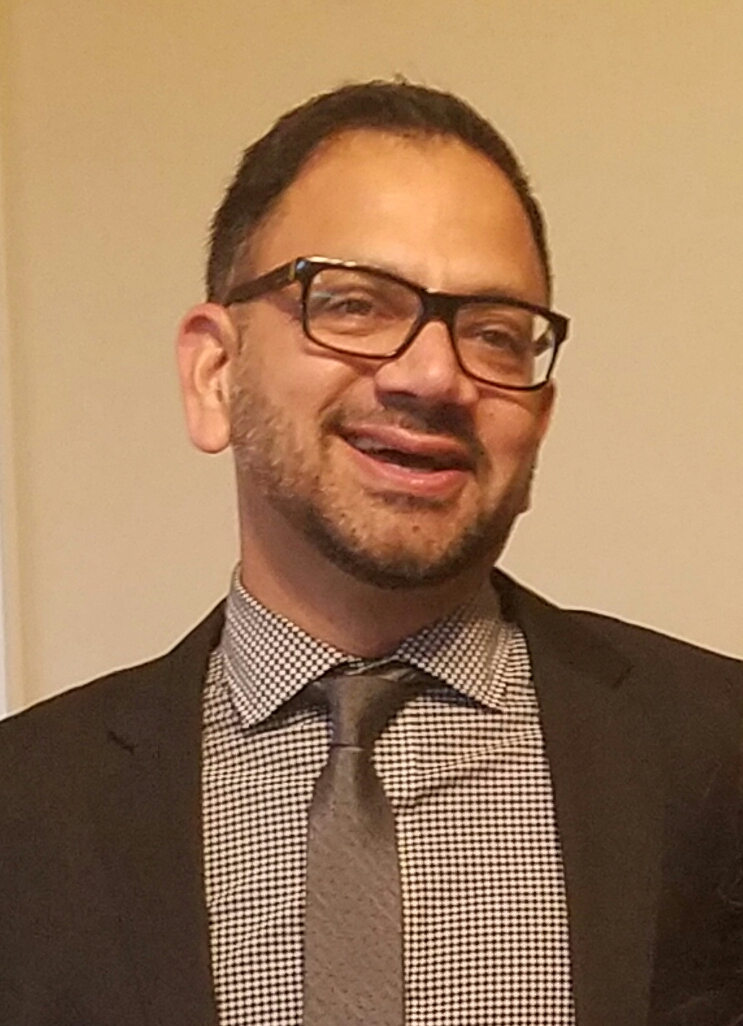 By Ajeet Gajra, MD, FACP
By Ajeet Gajra, MD, FACP
Do you live from vacation to vacation? Do you return from a nice sojourn feeling invigorated? Do you feel energized to return to your chosen profession and to your dear patients? Or do you dread the thought of returning to work and dealing with mounds of paperwork, heaps of EMR messages, and reams of unread email? Does it ever seem like the beneficial effect of each vacation lasts for a shorter duration as time goes on?
Some readers may find something abnormal with the situation that I describe here: A few years back, over the winter holidays, I, along with my wife and two kids, had taken time off to visit a tropical island where we were staying at a nice resort. The days were spent walking around the beach, hanging out in the pool, and generally having fun, as people do in such a place. However, each morning I would crawl out of bed between 3 and 4 AM and walk down half a mile to the resort lobby with my laptop under my arm. I spent a couple of hours there hooked into their wi-fi working on my EPIC charts. These were the early days of EMR and the wi-fi strength in the "resort villas" was limited given the remoteness of this locale. When my wife expressed her disappointment I had the perfect justification for her. In my mind, I thought it to be completely reasonable to set up and complete my charts during a 5-day family vacation. After all, I said, “I am on vacation and I want its benefit to last longer than the vacation itself. So, if I catch up on my work now then I will have less to do when I return back home to the grind.”
Along the way, I did not notice that my siblings, who live overseas, had essentially stopped calling me. When I enquired at a much later time regarding the reason, my sister stated, “We don’t like to bother you because you're so busy, always.” I also did not realize that a lot of my local buddies (mostly physicians and mostly self-employed) had stopped asking me out for hiking trips, NCAA games, rounds of drinks, and other male-bonding experiences, because I was either on call, writing a paper, or traveling for a meeting. Of course, in my mind, I was being academically productive and devoted to patient care and there was certainly nothing (seriously) wrong with it.
As time went on, I was setting my alarm for earlier in the morning, usually at 4:30 AM, on the pretext of getting some work done, to be followed by jaunt on the treadmill. However, the latter activity rarely materialized since the former gobbled up more of the precious morning time. I put on a few pounds (typical for my Asian Indian ancestry, I told myself) and managed to get pre-diabetes (blamed maternal family history).
It all came to a head because my wife said “enough.” I then had to acknowledge to myself that I had essentially been ignoring the major support that she offered in helping me get through my work and personal life. I was fortunate to have reliable mentors at work, dear friends outside of the institution (at other academic cancer centers) who heard me out. With them, I attended a session on physician burnout at the ASCO Annual Meeting, and hence began my affair with Maslach (the burnout inventory, that is). It was easy to diagnose myself with burnout (though my pride insisted that I did not have depersonalization).
Gingerly, I approached my supervisor, who was horrified that I would bring something like this up. I almost felt like it was a disease that I had contracted. Circuitously and almost begrudgingly, I was directed to an associate dean for faculty development. She happened to be a clinical psychologist and was sympathetic, acknowledging and recognizing the existence of burnout. She offered useful tools and suggestions that brought me some relief. However, this is not something that was going to cure itself and I had to take action. Most medical oncologists understand that it’s hard to sustain 8 to 9 half-day clinics per week, 18 weeks on inpatient wards annually, fellowship directorship, research, and scholarly output, especially when you are one of a two-physician couple.
So despite a sense of immense loyalty to the institution and the community, with Herculean effort I applied for other jobs. The process itself was instructive. I discovered so many aspects about myself that I did not know. Much as I love patient care and always believed it to be my calling, I realized that I did not have the zest to apply for another patient care job. Instead, I interviewed for a couple of industry jobs, even though they were outside of my comfort zone at the time. I met many different people, many of whom had burnout stories somewhat similar to mine. I learned about the “push and pull” when looking for a new job, i.e., to recognize whether it is really the “push away” from your existing employment or a true attraction, a "pull," toward the new position that is driving you. I sadly acknowledged to myself that it was a push for me and not so much a pull.
Eventually things worked out, as they often do. I gave up chunks of my job (e.g. fellowship directorship) even though they were a source of great satisfaction. I realized that you can love different aspects of your job immensely but cannot do justice to each and to yourself at the same time. Subsequently, there was recognition of the excess workload on our entire group by an external agency review. There was an en bloc change in institutional leadership (from the president, chair, and division chief). Life got much better. I learned along the way that no matter how high-functioning and dedicated you are, that in itself does not protect against burnout—and may actually contribute.
Listen to your spouse/partner. If they say you need to cut back, then you do (sort of like the CAGE questionnaire for alcohol). Listen to your friends and mentors. They have your best interests at heart. Then, pay it forward. Help a colleague, and they can help someone somewhere in the future. Institutions do have provisions to address and protect against burnout, but these services are often undervalued, inadequately advertised, and, hence, underutilized. Physician team leaders need to be trained in burnout recognition, prevention, and mitigation if they are to keep their teams (morale, productivity, bottom line, and patient satisfaction scores) away from the red zone!
Dr. Gajra is a professor of medicine at SUNY Upstate Medical University, Syracuse, NY, and serves as the medical director for the Upstate Cancer Center. His clinical area of focus is thoracic and head and heck cancers, with a special interest in the care of older adults with cancer and palliative care.


Comments
Apurva C. Mehta, MD
Mar, 28 2017 7:32 PM
You have hit the hammer dot on the nail Prof Gajra!
Denis Fitzgerald, MD
Mar, 31 2017 9:06 PM
One great way to help would be a drastic revision in documentation requirements, in the age of computer science there is no reason that we cannot briefly state what is wrong with the patient click if everything else is unchanged and then make a plan without worrying that someone will think we are cloning notes. The idiotswho review our charts do not spend hours in front of the stupid computer. The bigger idiots at CMS/AMA have been too lazy incompetent or stupid (likely all 3 ) to revise documentation guidelines . Think of it no change since 1996 when electronic records virtually were nonexisting. Do we treat our patientsw/ the same drugs as we did in 1996. The interenet was in its infancy at that time. Unbelievable
The incompetence of all these people is nauseating & the lack of recognition of the millions of hours of wasted time completing documentation is worse. Why are the "thought" leaders of academic medicine not making this the most urgent problem of our time. This is because they do not take care of patients and have their minions complete their charts if they happen to occasionally see a living person as a patient.
Ajeet Gajra, MD, FACP
Apr, 18 2017 3:13 PM
Dr Fitzgerald, your frustration with the ever increasing demands in terms of documentations is broadly felt.
EMR held a lot of promise but it has failed the physician community since (for the most part) it has added more to our plate than simplified our work life. I do believe that modification of documentation standards is appropriate in this new era. Certainly worth pursuing with teh ASCO Profressional Development Committee although sweeping changes are never easy.